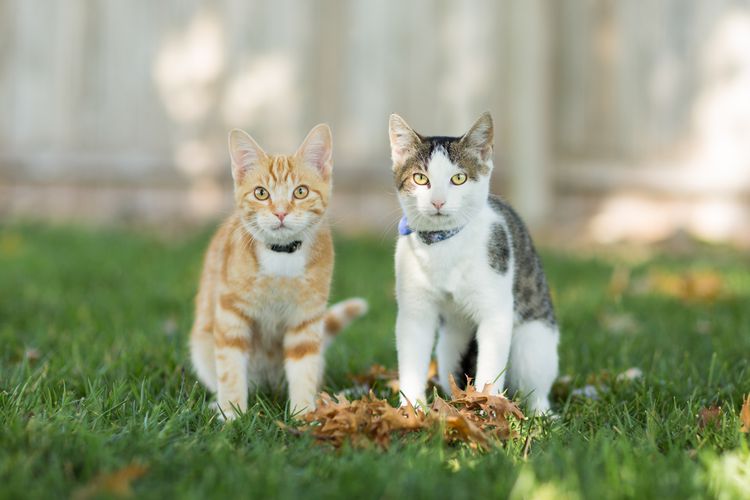
Ringworm is often seen in cats, even indoor cats. But despite the name, it doesn't involve any worms. Ringworm is a fungal infection that can affect the skin, fur, and claws. It can cause crusty and bald patches and itchiness. Left untreated, it can spread across the body and cause open sores, especially in animals with weak immune systems. Cats can pick it up from other animals that have ringworm, as well as from the environment where an infected animal has been. Not only can cats spread it among themselves, but it is also contagious to other animals and humans. Fortunately, even though this disease is highly contagious, it is also very treatable.
Ringworm is a fungal infection that affects many different species of animals. It's also referred to as dermatophytosis. In cats, about 98% of ringworm cases are caused by the easily transmitted fungus Microsporum canis. The fungi feed on keratin in the fur, skin, and nails. Ringworm gets its name from the red, ring-shaped rash that it sometimes causes. However, some infected cats only have very minor symptoms.
Ringworm symptoms range from very mild to severe and include:
When ringworm affects nails, they can take on a rough, pitted appearance. Eventually, they can look scaly and deformed.
Cats can carry the fungal spores of ringworm and show symptoms of the disease, or they might not show any symptoms at all. Either way, spores can spread to other cats quite easily. The common causes are:
Exposure doesn't always result in a case of ringworm. Animals with weak immune systems, as well as those with skin sensitivities, are especially prone to ringworm.
To confirm that your cat has ringworm and not another type of hair or skin issue, your vet might perform tests for a diagnosis, including:
These different tests will verify that your cat has ringworm. Your vet will then be able to treat the fungal infection with appropriate medication. Your vet might also ask whether you have any lesions or other skin abnormalities similar to your cat's, as you've likely been exposed to the fungus.
Ringworm lesions can look similar to other issues, which is why it might be necessary for your veterinarian to run more than one test. For example, fleas and mange can cause hair loss and itching. Plus, some cats will lick their fur off and irritate their skin until it's red due to allergies or stress and anxiety. A misdiagnosis can mean your cat will be given the wrong kind of medication.
If your veterinarian has diagnosed your cat with ringworm, they'll likely prescribe an antifungal medication to treat the infection. Itraconazole is a frequently used medication for pets with ringworm. Sometimes topical ointments are used to treat ringworm in conjunction with oral treatments. By using both oral and topical treatment regimens, you'll kill both the spores on the skin and suppress the infection in the cat systemically.
Finally, if you have a cat with ringworm, you'll need to treat your home environment to kill any spores. Use a diluted bleach solution on surfaces after your general cleaning routine. It can be helpful to restrict your cat to a small, easy-to-clean area until it is no longer infected.
Most cats recover from ringworm infections, though it can take some time. In general, the lesions can take more than a week before they show improvement from treatment. Also, inadequate treatment or stopping treatment too soon can cause a relapse. After a course of treatment, your vet might perform another test to make sure the ringworm has cleared up and your pet is no longer contagious. Until you know this, minimize contact between your pet and any other people and pets in the house, and keep its area sanitary.
Ringworm is highly contagious, but it's also preventable if the appropriate steps are taken. Washing your hands before and after handling your pet is the easiest way to decrease the likelihood of you or your cat becoming infected with ringworm. Aside from that, don't let your cat play with cats that don't live within your household. Maintain a sanitary living environment for you and your cat. And if you have ringworm, refrain from touching your cat until your doctor has determined that you're free of the infection.
Ringworm in cats is contagious to other animals, including humans. Ringworm can live for up to 18 months in the environment on items such as brushes, pet beds, furniture, carpeting, and bowls. So if you have an infected animal or suspect a case, immediately separate its items from any other pets you have.
Ringworm is a zoonotic disease, which means it can spread from an animal to a human. A ringworm infection in a person typically occurs after a person has touched an infected or carrier cat. But it can also occur after simply handling items that were used by an infected cat. Immune-compromised individuals are more prone to contracting ringworm. Hand-washing and maintaining sanitary conditions can help to prevent the spread.

Exploring the Different Types of Pet-Friendly Beaches
Are you looking for pet-friendly beaches? Learn about the different types of pet-friendly beaches, their locations, and tips for visiting them with your pet.
Exploring Pet-Friendly Wineries: Types, Locations, and More
Discover the different types of pet-friendly wineries, where to find them, and what to expect when you visit. Learn more with The Spruce Pets.
Why Is My Dog’s Eye Swollen?
If your dog's eye is swollen, she may need veterinary attention. The inflammation could be caused by allergies, an injury, or even a tumor.
Can Dogs Eat Corn on the Cob?
Dogs love chewing on corn cobs, but this can cause serious harm. Learn about the dangers of corn cobs and find out what to do if your dog eats one.
Can Dogs Eat Papaya? What to Know About Sharing This Tropical Fruit With Your Pup
Papaya is safe for dogs in moderation, and it can even provide some nutritional value for them. However, too much can cause digestive upset, and it's not suitable to share with dogs with certain health conditions.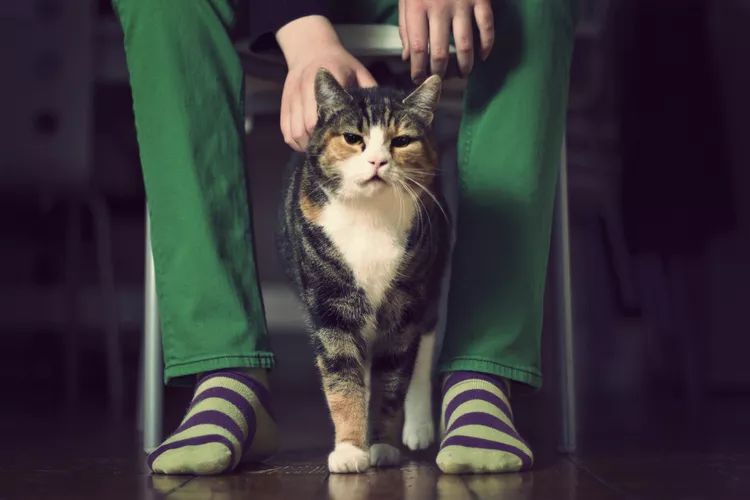
65 Irish Cat Names
Irish cat names can pay homage to historical places, local cuisine, famous Irish actors and musicians, or other wonderful aspects of the Emerald Isle.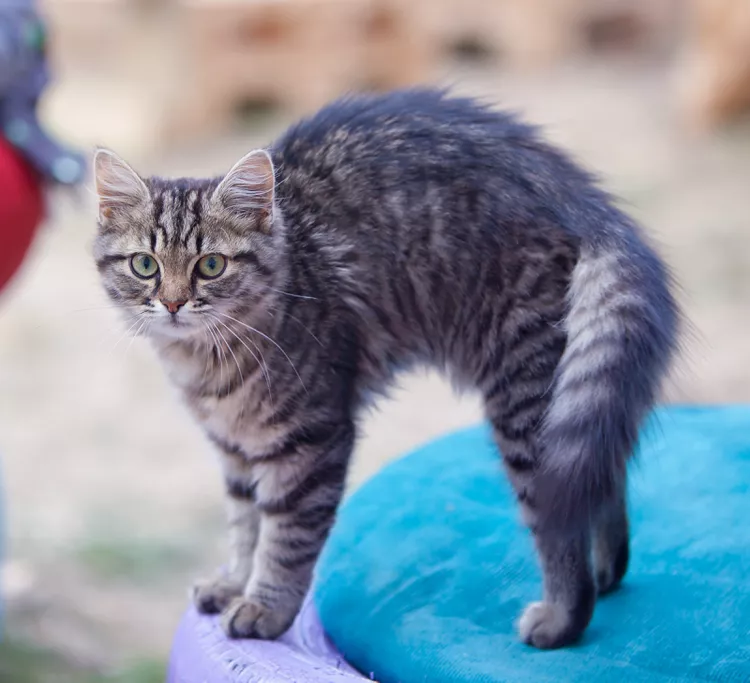
Feline Hyperesthesia Syndrome (FHS) in Cats
Rippling skin is more than dermal sensitivity in cats. It can be a sign of Feline Hyperesthesia Syndrome. Learn the causes, treatment, and prevention.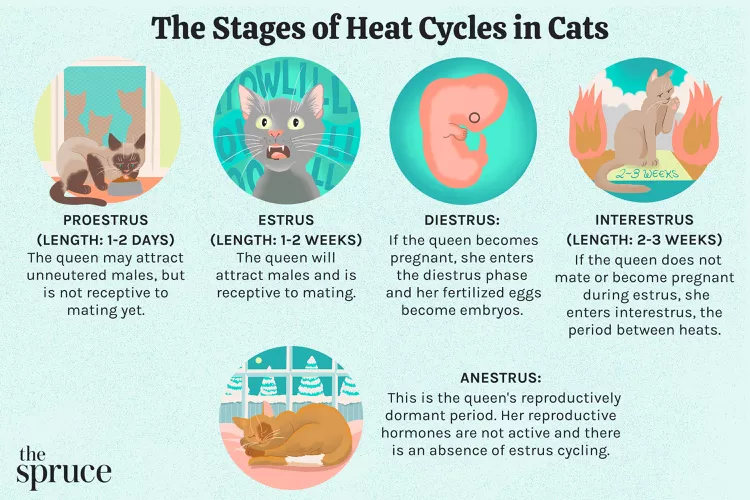
How Long Are Cats in Heat?
How long are cats in heat? Learn about the heat cycles of cats, also called estrus, as well as the reasons you should spay your cat.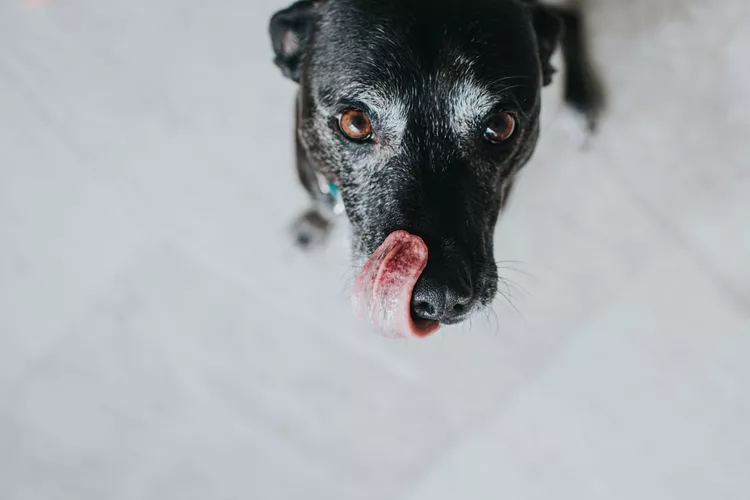
Can Dogs Eat Raw Chicken Feet?
What are the potential health benefits of chicken feet for dogs? What are the risks?
Is Eucalyptus Safe for Cats?
Many products containing eucalyptus are not safe for cats, and it is important to be aware of the risks to your cat.
What You Need to Know About Homemade Cat Food
If you want to cook for your cat, make sure to read about the risks associated with homemade diets for cats
Can Cats Eat Peanut Butter?
Peanut butter is not toxic to cats, but it might not be the best choice of treat for them.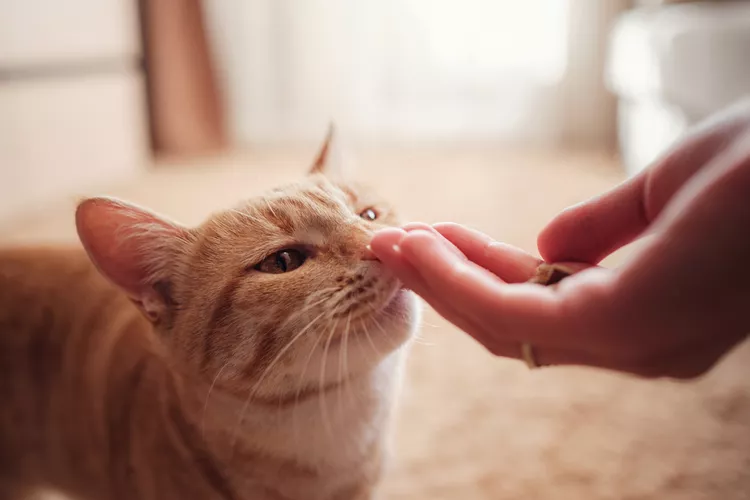
Can Cats Eat Cheese?
Can cats eat cheese? Is it healthy for them? How much can they eat and what should you do if you fear your cat has eaten too much cheese?
8 Flat-Faced Cats with the Cutest Smooshed Faces
These flat-faced cat breeds have a distinct and adorable appearance. Learn about their origins and traits, and the potential health risks tied to their unique facial structures.
Pictures and Facts About Bengal Cats and Kittens
Bengal cats are a cross between wild cats and domestic cats. Learn more about what they look like and pictures of this beautiful spotted breed.
Top 10 Big House Cats
Larger cat breeds, like Maine coons and savannahs, deserve just as much love as their petite counterparts. These big house cats tip the scales.
Cairn Terrier: Dog Breed Characteristics & Care
The cairn terrier is a spunky, affectionate, and intelligent dog from Scotland. The breed became famous when one played Toto in The Wizard of Oz. Learn about the temperament, history, health, and care needs of the cairn terrier dog breed.
Reasons Why Dogs Grind Their Teeth
Some dogs grind their teeth. Learn why dogs grind their teeth and if it can be harmful. Find out what to do about teeth grinding in dogs.
This Is Why Some Dogs Lean on People
Certain dogs really love leaning on their humans. What does this mean? Find out why dogs lean on people and if this is ever a problem.
Can Dogs Get Depression? How to Help Your Sad Dog
Can dogs get depression? Learn about the signs of depression in dogs and find out how to help your sad dog.